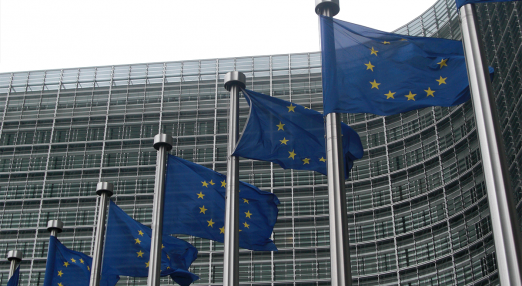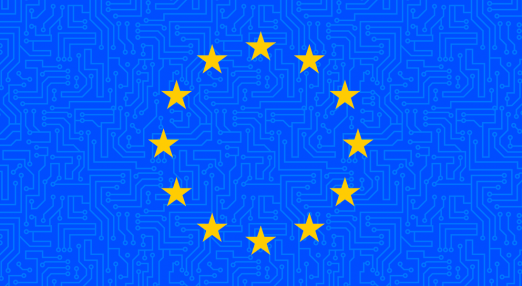What’s up with WhatsApp encrypted backups
WhatsApp is rolling out an option for users to encrypt their message backups, and that is a big win for user privacy and security. The new feature is expected to be available for both iOS and Android “in the coming weeks.” EDRi's member Electronic Frontier Foundation (EFF) has pointed out unencrypted backups as a huge weakness for WhatsApp and for any messenger that claims to offer end-to-end encryption, and we applaud this improvement. Next, encryption for backups should become the default for all users, not just an option.
Filter resources
-

What’s up with WhatsApp encrypted backups
WhatsApp is rolling out an option for users to encrypt their message backups, and that is a big win for user privacy and security. The new feature is expected to be available for both iOS and Android “in the coming weeks.” EDRi's member Electronic Frontier Foundation (EFF) has pointed out unencrypted backups as a huge weakness for WhatsApp and for any messenger that claims to offer end-to-end encryption, and we applaud this improvement. Next, encryption for backups should become the default for all users, not just an option.
Read more
-

Human rights focus missing in the State of the Union 2021 address
On 15 September, the yearly State of the Union 2021 address took place. The address is the event where the European Commission evaluates the preceding year and the Commission President announces key legislation or reactions to crucial international events.
Read more
-

UK Investigatory Powers Tribunal finds the regime for bulk communications data to be incompatible with EU law
The UK Investigatory Powers Tribunal issued a declaration in EDRi member Privacy International's challenge to the bulk communications data regime, finding UK legislation to be incompatible with EU law.
Read more
-

How a rotten Apple (and bad legislation) could spoil our private communications
In August 2021, Apple announced significant changes to their privacy settings for messaging and cloud services, only to “pause” it in early September. Earlier this summer, the European Parliament adopted in a final vote the derogation to the main piece of EU legislation protecting privacy, the ePrivacy Directive, to allow Big Tech to scan your emails, messages, and other online communications.In August 2021, Apple announced significant changes to their privacy settings for messaging and cloud services, only to “pause” it in early September. Earlier this summer, the European Parliament adopted in a final vote the derogation to the main piece of EU legislation protecting privacy, the ePrivacy Directive, to allow Big Tech to scan your emails, messages, and other online communications.
Read more
-

Member in the Spotlight: Xnet
EDRi's member Xnet is an activist project working and proposing advanced solutions in fields related to digital rights and networked democracy.
Read more
-

Europe’s Data Retention Saga and its Risks for Digital Rights
It seems that despite several Court of Justice of the European Union (CJEU) decisions in this area, the data retention saga is unlikely to come to an end any time soon. After the invalidation of its previous instrument, the 2006 Data Retention Directive, the European Commission is currently trying to devise a new plan for the retention of traffic and location data for law enforcement and security purposes in the European Union (EU). The Commission stands at a crossroad: to intervene or not to intervene, that is the question.
Read more
-

NGO demands disclosure of A1 Telekom Austria Group’s entanglements in Belarus
EDRi's member epicenter.works protested in front of the A1 Telekom Austria Group’s building in June 2021 to raise awareness of the involvement of the partially state-owned company in the internet shutdowns in Belarus that unfolded around the controversial election of the long-term dictator Lukaschenka. The protest was accompanied by attacks by the company against the non-profit NGO.
Read more
-

It’s official. Your private communications can (and will) be spied on
On 6 July, the European Parliament adopted in a final vote the derogation to the main piece of EU legislation protecting privacy, the ePrivacy Directive, to allow Big Tech to scan your emails, messages and other online communications.
Read more
-

Joint Civil Society Statement Urges IMCO Committee to Uphold Fundamental Rights in the DSA
On 1 July 2021, along with 6 leading civil society organisations EDRi signed a joint statement urging Members of the Internal Market and Consumer Protection Committee (IMCO) in the European Parliament to uphold fundamental rights and democratic principles in the final Digital Services Act (DSA) regulation.
Read more
-

Fear and loathing in the UK adequacy decision
The Council of the European Union unanimously approved the United Kingdom (UK) draft adequacy decision. In an ideal world, this would indicate that the UK offers an adequate level of protection for personal data, and would signal their willingness to retain those standards. Unfortunately, reality tells a different story, that should be worrying for human rights advocates on both sides of the channel.
Read more
-

Five reasons to claim victory on the EU Digital COVID Certificate
On 8 June 2021, the European Parliament voted on the interinstitutional compromise text on the regulation(s) on the EU Digital COVID Certificate (EU DCC, also known as the Digital Green Certificate and the European Green Pass). The proposed legislation regulates the “framework for the issuance, verification and acceptance of interoperable certificates on vaccination, testing and recovery” with aim of facilitating free movement during the COVID-19 pandemic.
Read more
-

German Big Brother Awards call out top privacy abusers
On Friday, 11 June 2021, the German Big Brother Awards (BBA) gala was held in Bielefeld, Germany. Organised by EDRi member Digitalcourage with jury members and support from several German groups, including other EDRi members, these awards have been held since 2000
Read more
